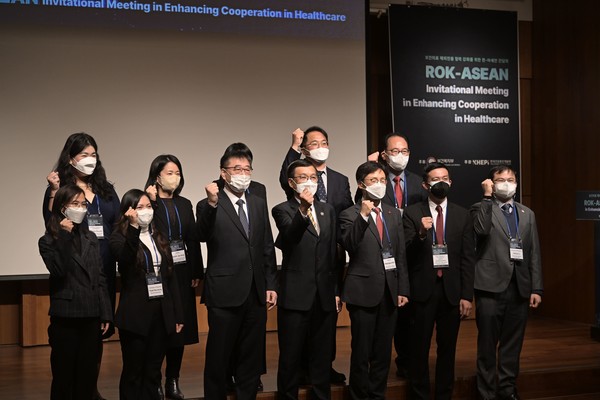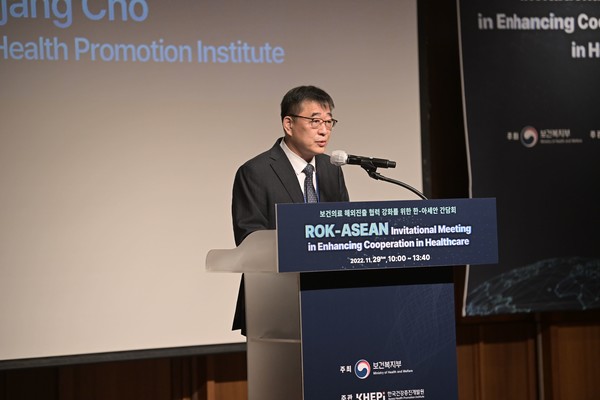Health officials from ASEAN countries gathered to discuss enhancing healthcare systems with a special focus on developing universal healthcare coverage (UHC) and health security with the help of Korea’s expertise at a meeting in Seoul on Tuesday.

The Association of Southeast Asian Nations (ASEAN) promotes economic and security cooperation among its 10 members -- Brunei, Cambodia, Indonesia, Laos, Malaysia, Myanmar, the Philippines, Singapore, Thailand, and Vietnam.
ASEAN accounts for 65 percent of the world's population and 60 percent of the world’s GDP.

“We have managed to meet the OECD average standards in many health-related indicators like life expectancy and infant mortality in record time,” Korea Health Promotion Institute (KHEPI) President Cho Hyun-jang said. “We wish to use our experience in improving our healthcare systems to share insights in various areas of the national health systems at this meeting.”
MOHW Deputy Director of Trade and Development Affairs Kim So-min introduced the ongoing K-Health project.
The project mainly encompasses ASEAN-customized UHC international training courses and financial risk management support for strengthening UHC systems and an e-government cloud system and international training courses for managing infectious disease response.
Kim also highlighted bioindustry manufacturing, health promotion control for non-communicable diseases (NCDs), and digital health as priority areas for the continuation of the K-health project, which is scheduled to end in 2023.
Oh Yu-mi, director of international health cooperation at KHEPI, also shared that the institute aims to conduct the aforementioned projects using data surveys and analyses, visit assessments, and collating opinions of experts in the field to deliver customized aid given the wide diversity among ASEAN member states.
Yoon Sang-chul, a visiting scientist from Harvard School of Public Health and WHO consultant, highlighted Cambodia’s Health Equity and Quality Improvement Project (H-EQIP II), supported by KOICA and World Bank, as an exemplary model to establish more equitable utilization of health services for to achieve sustainable health systems
Joel Buenaventura, a health official from the Department of Health of the Philippines, commented on the difficulty of dealing with multiple agencies to achieve each project’s goals.
“We must also consider the transaction costs of these projects and try as best as possible to consolidate projects in a more centralized way so our objectives can be achieved most quickly and efficiently possible,” he said.

